 This is just a very quick note to memorialize tonight’s filing by the plaintiffs in the Los Angeles Catholic Worker and Los Angeles Community Action Network’s suit against the City of Los Angeles and the Central City East Association. Last Wednesday the plaintiffs filed a massive set of declarations and other stuff about ongoing problems with the City’s discovery production in preparation for tomorrow’s hearing (at 10 a.m.) on the plaintiffs’ application to have the City held in contempt. First there is a notice of errata stating that they left part of one exhibit out of the Declaration of Shayla Myers in support of the application for contempt, and then, more interesting, the corrected Exhibit F. Some details after the break.
This is just a very quick note to memorialize tonight’s filing by the plaintiffs in the Los Angeles Catholic Worker and Los Angeles Community Action Network’s suit against the City of Los Angeles and the Central City East Association. Last Wednesday the plaintiffs filed a massive set of declarations and other stuff about ongoing problems with the City’s discovery production in preparation for tomorrow’s hearing (at 10 a.m.) on the plaintiffs’ application to have the City held in contempt. First there is a notice of errata stating that they left part of one exhibit out of the Declaration of Shayla Myers in support of the application for contempt, and then, more interesting, the corrected Exhibit F. Some details after the break.
Continue reading Updated Exhibit F Filed Tonight in LACW/LACAN v. City of LA, CCEA Lawsuit, Includes Detailed List of Weird Lacunae in City’s Discovery Production
Tag Archives: Los Angeles City Attorney
Shame, Shame on Carol Schatz: The Zillion Dollar Woman’s Duplicity is Revealed by Propositional Logic Even Though She Just Wants to be Fair to “Homeless Individuals”
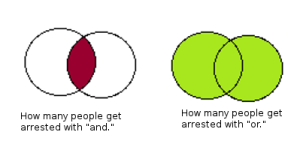
Carol Schatz, she of the zillion dollars an hour paycheck, just this evening with respect to Council file 14-1656-S1, on homeless people’s property, had a letter to the Council appear, advocating a change in conjunction from “and” to “or” in the proposed statute. Here’s what Carol Schatz had to say about the current proposal:
The ordinance from the City Attorney transmitted to the PWGR committee1 only leads to a violation if a person refuses to remove a tent and obstructs removal.
And why is this bad, Carol? Pray, do tell:
This is unreasonable in light of limited city resources. It would require the continued involvement of the LAPD to have tents deconstructed on a daily basis, which is not practical or the best use of resources. It also does not meet the City’s goal of decriminalizing homelessness.
And not only that, but look:
This is unfair to homeless individuals, business owners, residents and other community stakeholders.
You read it here second, friends! Carol Schatz is concerned that some City law is unfair to homeless people.2 Carol Schatz, the homeless people’s friend! Well, anyway, that line about the proposed law not decriminalizing homelessness is true, at least. Arresting homeless people because they won’t remove their tent and obstruct its removal “…does not meet the City’s goal of decriminalizing homelessness.” After all, it provides a way to arrest people, and only homeless people are affected. So what’s her solution? We are glad you asked! Read on for details:
Continue reading Shame, Shame on Carol Schatz: The Zillion Dollar Woman’s Duplicity is Revealed by Propositional Logic Even Though She Just Wants to be Fair to “Homeless Individuals”
Analysis of Public Urination Arrest Reports Reveals BID Patrol Ignorance of Meaning of Word “Public,” Illuminates Importance of Rule of Law in a Free Society
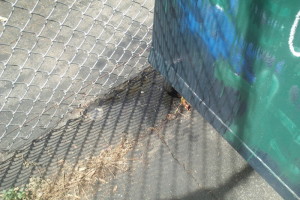
No person shall urinate or defecate in or upon any public street, sidewalk, alley, plaza, beach, park, public building or other publicly maintained facility or place, or in any place open to the public or exposed to public view, except when using a urinal, toilet or commode located in a restroom, or when using a portable or temporary toilet or other facility designed for the sanitary disposal of human waste and which is enclosed from public view.
But a little googling revealed the explanation, among other interesting things. First, public urination wasn’t against the law in the city of Los Angeles until 2003. We’re guessing that there was no pressing need to make it so because vagrancy laws could be used against public urinators as desired until they were definitively destroyed in 1983.3 So maybe outlawing public urination wasn’t as urgent as, e.g., squashing drinking beer in the park (which was outlawed in LA only in 1983) and also, the LA Times suggested that previously public urinators were charged with littering, but that the City Attorney decided that that was bogus. In any case, the Council file on the matter shows, surprisingly, that it took more than four years to get the prohibition passed into law. There doesn’t seem to have been any public discussion of the matter before it passed, either, although it may be just that the online materials from that long ago are fragmentary.
Second, the LA Times article quoted the objections of members of the Los Angeles Community Action Network and other homeless advocates to a law which criminalized essential bodily functions of the homeless, and in response, after the law was passed, according to the Times, “Council members pledged that people would be prosecuted only in cases when there is a public toilet nearby that they failed to use.” So this is why, no doubt, the BID Patrol feels that it has to note the locations of nearby “public” restrooms in its arrest reports. Their weirdo interpretation of the meaning of “public” also shows why it’s necessary to put things like the “public restrooms available” pledge in the law itself. Actually, once the law is passed, it doesn’t matter what Councilmembers say they meant it to mean, it only matters what it says. This is how the rule of law works in a free society. Also, isn’t it very suspicious but unfortunately not surprising that they put the fuzzy-wuzzy warmsy-hugsy interpretation of the law in the paper but not in the statute books?
And that’s not the worst thing about this nonsense. Even if the City Council intended the law to be enforced this way, even if the freaking Mayor ordered the LAPD only to enforce the law this way, none of that would reign in the BID Patrol. They are essentially beyond the control of public policy and beholden only to the written letter of the law.4 As we’ve discussed before, according to LAPD Commander Andrew Smith, if a citizen’s arrest is made, the LAPD must accept custody of the arrestee even if the arrest was made contrary to public policy.
We look at some specific examples after the break, and also provide links to all mentions of the words “public” and “restroom” in both the 2007 and the 2013 BID Patrol arrest reports so you can see for yourself what’s going on.
Continue reading Analysis of Public Urination Arrest Reports Reveals BID Patrol Ignorance of Meaning of Word “Public,” Illuminates Importance of Rule of Law in a Free Society
2008 Selma Park Arrest Reports (and more) Now Available
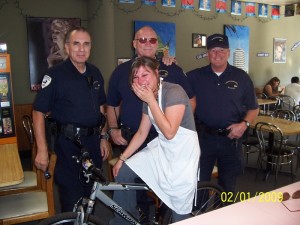
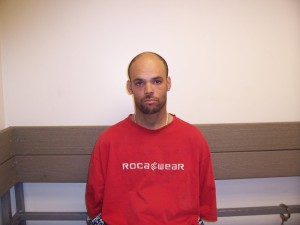
Note that none, not one, of the following people appears on the list of cases originating at Selma Park that our correspondent obtained from the City Attorney’s office. Keep that in mind while you read the arrest reports. They didn’t even have enough of a case to be referred for prosecution. Read on for specifics.
Continue reading 2008 Selma Park Arrest Reports (and more) Now Available
BID Patrol Prosecution/Arrest Ratio Very Low as Shown by Top Arrestees 2007-2013: From 44 Frequently Arrested People with 1144 Arrests, 407 Brought to City Attorney, Only 185 Actually Prosecuted
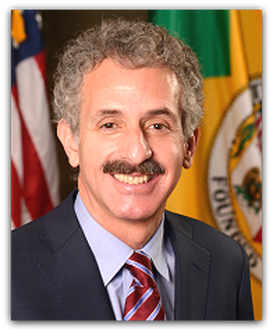
This is an astonishingly low rate if one thinks that the purpose of arresting people is to stop them from breaking the law, and it’s harmful both to the people arrested and to society at large. The incomparable Alexandra Napatoff, writing about misdemeanor convictions (although her argument is as strong regarding the arrests themselves, and even more so if the conviction rate is so very low), puts it like this;
Because the misdemeanor world is so large, its cultural disregard for evidence and innocence has pervasive ripple effects, not the least of which is the cynical lesson in civics that it teaches millions of Americans every year. In these ways, the misdemeanor process has become an influential gateway, sweeping up innocent as well as guilty on a massive scale and fundamentally shaping not only the ways we produce criminal convictions but also who is likely to sustain them.
Continue reading BID Patrol Prosecution/Arrest Ratio Very Low as Shown by Top Arrestees 2007-2013: From 44 Frequently Arrested People with 1144 Arrests, 407 Brought to City Attorney, Only 185 Actually Prosecuted
An Open Letter to Mitch O’Farrell Regarding Plans to Fund Andrews International BID Patrol Operations in Hollywood
March 2, 2016
Councilmember Mitch O’Farrell
200 N Spring St #450
Los Angeles CA 90012
Dear Councilmember O’Farrell,
I am writing to you regarding plans that the Hollywood Property Owners Alliance and the Los Angeles Police Department are making to extend the patrol hours of the Andrews International BID Patrol in the Hollywood Entertainment District until 4 a.m. In particular, I heard at the last HPOA board meeting that you were considering funding all or part of this program from your discretionary money. If this report is accurate, I hope that you will ultimately decide not to fund an expansion of BID Patrol hours in Hollywood. Here are a number of reasons why I think your funding this project would be a bad idea:
1. Regardless of the intention, it looks like a way to evade Police Commission oversight of law enforcement in Hollywood: This expansion of the BID Patrol’s operations is apparently being planned at the request of Hollywood Divison’s Commanding Officer Peter Zarcone. If it’s implemented it will therefore create a City-funded group of quasi-police assembled at the City’s request who are not subject to any kind of civilian oversight or control. I understand that in some technical sense the BID Patrol aren’t police, but this plan makes that seem even more like a distinction without a difference than it already does.
Continue reading An Open Letter to Mitch O’Farrell Regarding Plans to Fund Andrews International BID Patrol Operations in Hollywood
Using Your Own Scanner During “Inspection” of Public Records is Allowed by City of Los Angeles, Other Details About LAPD Public Records
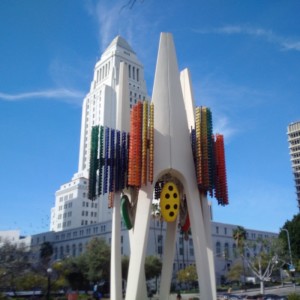
Continue reading Using Your Own Scanner During “Inspection” of Public Records is Allowed by City of Los Angeles, Other Details About LAPD Public Records
City of Los Angeles Files Answer to Stop LAPD Spying Coalition Public Records Act Petition: Admits Guilt, Expects Reward

She also displays a wry, deadpan humor. For instance, in paragraph 3 the plaintiffs assert that the Coalition to Stop LAPD Spying “empowers its members to work collectively against police repression and to dismantle domestic spying operations” and that therefore the Coalition has an interest in the LAPD’s adhering to the Public Records Act. Julie Raffish has the City admitting that the Coalition is interested, but claiming that, as to the rest of the allegations they “lack sufficient information and knowledge to form a belief as to the truth…” of, I guess, whether there are “police repression” and “domestic spying operations” to be dismantled and worked collectively against. Dry as a bone, is Julie Raffish, and isn’t lawyerly humor fun! But the public records stuff is where it gets really interesting:
Continue reading City of Los Angeles Files Answer to Stop LAPD Spying Coalition Public Records Act Petition: Admits Guilt, Expects Reward
City of Los Angeles Files Boilerplate Motion in Stop LAPD Spying CPRA Case Stating that Judge Joanne O’Donnell is too Prejudiced to Officiate

Joanne O’Donnell, the judge before whom the trial or hearing in this action is pending or to whom it has been assigned, is prejudiced against the Respondent [City of Los Angeles] or its attorney or the interest of the Respondent or its attorney, so that the declarant [Julie Raffish] believes that she cannot have a fair and impartial trial or hearing before the judge.
Now, this is obviously a boilerplate motion, and, at least as of today, the first three hits on a Google search on los angeles superior court peremptory challenge to judicial officer are forms for this, using the identical language to the motion filed by Julie Raffish. But there’s more!
Continue reading City of Los Angeles Files Boilerplate Motion in Stop LAPD Spying CPRA Case Stating that Judge Joanne O’Donnell is too Prejudiced to Officiate
Discovery Hangups Seem to Have Been Settled in Today’s Hearing in LA Catholic Worker, LA CAN, v. City of L.A., Central City East Association
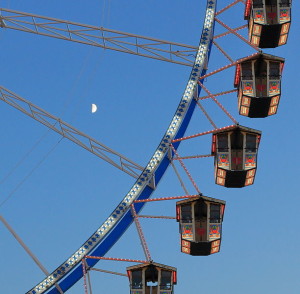
Continue reading Discovery Hangups Seem to Have Been Settled in Today’s Hearing in LA Catholic Worker, LA CAN, v. City of L.A., Central City East Association
